Navigating the Future of Mortgage Interest Rates: A Closer Look at Potential Trends
One of the critical factors to consider when contemplating a mortgage is the interest rate. As homeownership remains a significant goal for many individuals, understanding the direction in which mortgage interest rates are heading becomes paramount. This blog aims to explore potential trends and shed light on where mortgage interest rates might be heading in the future, taking into account various economic and market factors.
Current Landscape
Before delving into the future of mortgage interest rates, it is essential to comprehend the present scenario. As of my knowledge cutoff in September 2021, mortgage rates were hovering near historic lows due to the COVID-19 pandemic and the subsequent economic downturn. Central banks worldwide implemented accommodative monetary policies to stimulate economic growth, keeping interest rates low.
However, it is important to note that mortgage interest rates are influenced by a multitude of factors, such as economic indicators, inflation, fiscal policies, and global market dynamics. Predicting the future trajectory accurately can be challenging due to the complex interplay of these variables. Nonetheless, let us examine some potential trends that could shape mortgage interest rates in the coming years.
- Economic Recovery and Growth
As the global economy gradually recovers from the pandemic’s impact, it is expected that central banks will start tapering their monetary stimulus measures. This could lead to a gradual increase in interest rates. However, the pace and magnitude of rate hikes would depend on various factors, including inflation, employment levels, and overall economic growth.
- Inflationary Pressures
Inflation is a crucial driver of interest rates. If inflationary pressures persist or rise significantly, central banks may respond by raising rates to curb inflation. However, if inflation remains subdued, interest rates may stay relatively low. The relationship between inflation and interest rates is a delicate balance, and policymakers will closely monitor inflationary trends to guide their decisions.
- Monetary Policy Changes
The actions taken by central banks play a significant role in shaping mortgage interest rates. As economic conditions evolve, central banks might adjust their monetary policy stance. For instance, if inflationary pressures mount, central banks could adopt a more hawkish stance and increase rates to maintain price stability. Conversely, if the economy requires additional stimulus, central banks may lower rates to encourage borrowing and investment.
- Housing Market Conditions
The state of the housing market can also influence mortgage interest rates. When demand for homes is high, lenders may raise rates to maintain a balanced market and manage the risks associated with increased borrowing. On the other hand, if the housing market faces a slowdown, lenders may reduce rates to stimulate demand and encourage prospective buyers.
- Global Factors
The interconnectedness of financial markets means that global factors can impact mortgage interest rates. International events, geopolitical tensions, and changes in global economic conditions can reverberate through financial systems. For instance, if major economies experience a slowdown, investors may seek safe-haven assets such as government bonds, which could lead to lower mortgage rates.
Conclusion
Predicting the future trajectory of mortgage interest rates is an intricate task due to the multitude of factors at play. While it is challenging to provide a definitive answer on where rates are heading, understanding the potential trends can help individuals make more informed decisions regarding homeownership and mortgage financing.
As the world recovers from the COVID-19 pandemic, central banks’ actions, inflationary pressures, economic growth, and housing market conditions will all contribute to the direction of mortgage interest rates. It is crucial to stay informed and regularly monitor market trends when considering a mortgage, seeking the guidance of financial professionals who can provide personalized advice based on individual circumstances.
Ultimately, whether you are a prospective homebuyer or an existing homeowner looking to refinance, staying vigilant and adaptable to changing market conditions will empower you to navigate







